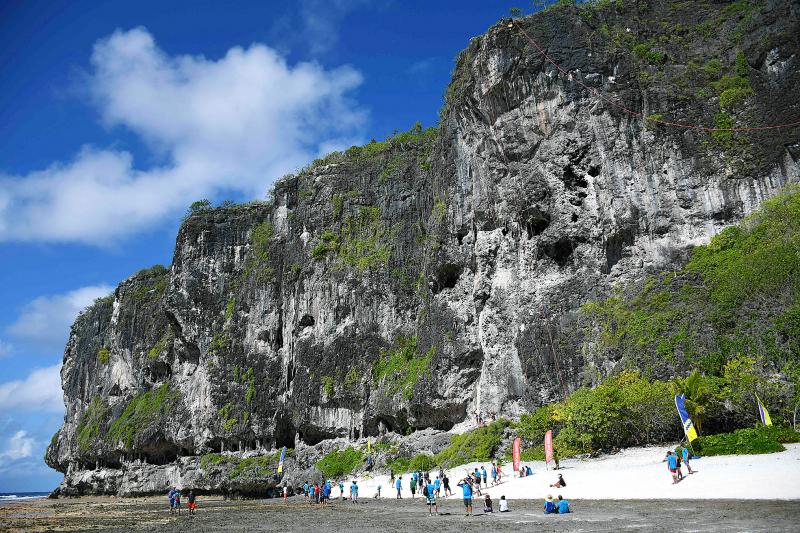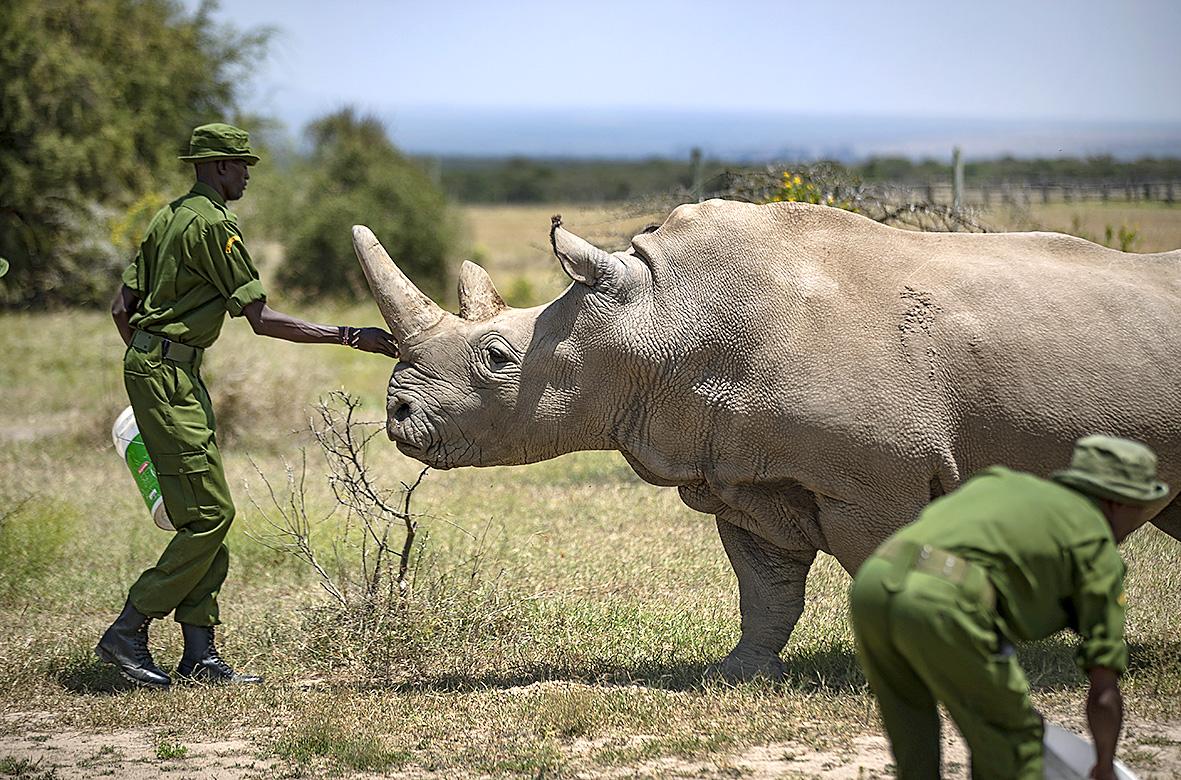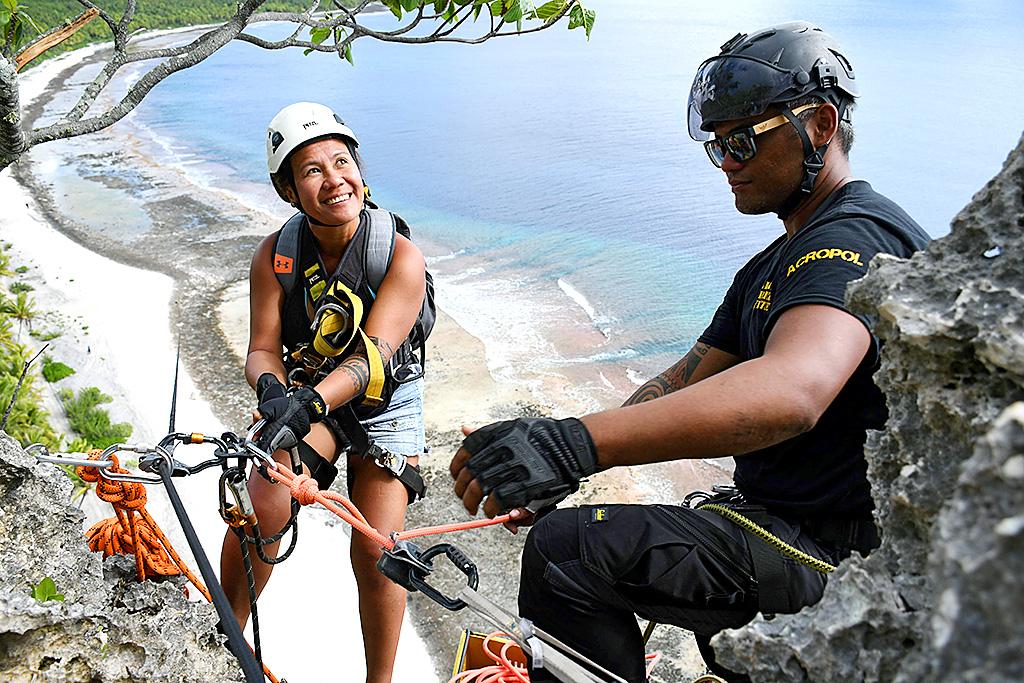From the vast plains of the Masai Mara in Kenya to the delicate corals of the Aldabra atoll in the Seychelles, conservation work to protect some of the world’s most important ecosystems is facing crisis following a collapse in ecotourism during the COVID-19 pandemic.
Organizations that depend on visitors to fund projects for critically endangered species and rare habitats could be forced to close, according to wildlife NGOs, after border closures and worldwide travel restrictions abruptly halted millions of pounds of income from tourism.
Throughout the pandemic, scientists have repeatedly urged humanity to reset its relationship with nature or suffer worse outbreaks. But the economic consequences of the COVID-19 lockdown have raised fears of a surge in poaching, illegal fishing and deforestation in life-sustaining ecosystems, with tens of thousands of jobs in the ecotourism sector at risk around the world.

Photo: AFP
“It’s right that the global focus now is on protecting human lives in this devastating pandemic. However, in the places we work, we are already witnessing its economic impact, particularly in areas where communities rely heavily on ecotourism for their livelihoods,” said Mike Barrett, executive director of science and conservation at WWF UK.
In Cambodia, three critically endangered giant ibis were killed for meat in early April following the collapse of the local tourism industry, according to the Wildlife Conservation Society. In central Africa, measures to shield mountain gorillas from the virus have resulted in a slump in vital visitor revenue. Twelve rangers who guarded Virunga national park, where the gorillas live, were killed in eastern Democratic Republic of the Congo last month.
“It could be years before these places can fully recover, increasing the risk that people come to rely on other activities to make a living, putting unsustainable pressure on natural resources,” Bartlett said. “Additionally it is currently much harder to monitor land grabbing and illegal poaching.”

Photo: AP
While the poaching of rhinos, big cats and critically endangered species has continued during lockdown, a recent Wildlife Justice Commission report found the illegal wildlife trade had been severely disrupted by movement and travel restrictions.
But conservationists fear an explosion of illegal hunting if organizations are forced to lay off wildlife rangers and suspend surveillance programs. Black rhinos in the Okavango Delta, Botswana, have been evacuated after at least six were killed by poachers in March.
Dickson Kaelo, chief executive officer at Kenya Wildlife Conservancies Association, said all bookings for this year’s key activities such as the wildebeest migration in the Masai Mara had been canceled, prompting difficult choices about staff in Kenya’s conservancies.

Photo: AFP
“While elephant poaching may not escalate owing to the current suppression of international travel and negative sentiments against animal products in south-east Asia, demand for bushmeat will go up if there is nobody to monitor activities within the conservancies,” he said.
“Poaching for bushmeat already existed on a small scale even before the coronavirus outbreak. With more Kenyans out of work, bushmeat will be more appealing than meat sold by the licensed butcher. If the rangers have no salaries, how will they effectively monitor human activities in and out of the conservancies?”
Wildlife conservation in Kenya had already suffered a series of setbacks following a devastating locust invasion and a viral outbreak among livestock in the Greater Mara conservation area. Kaelo said coronavirus will compound the effects on community-led wildlife conservation.
“Members of these communities may lose faith in wildlife conservation if there is no money forthcoming. In addition, people who live around these wildlife havens and looked forward to selling artifacts to tourists may resort to other income-generating activities such as farming, fueling the never-ending human-wildlife conflicts as animals invade and destroy their new farms,” he said.
In Colombia, the big cat conservation organization Panthera has recorded a spike in big cat poaching, with two jaguars, an ocelot and a puma killed in recent weeks. The organization is struggling to fund basic running costs as donations dry up or are delayed.
While rangers are forced to stay at home, Esteban Payan, director of the jaguar program in the region, said he was concerned about illegal land grabbing and intentional wildfires.
“My worst fear post-pandemic is that once we go out, we’re going to find hectares and hectares of fenced-out new farmland where you don’t know who they are or what is happening. There’s rampant deforestation in Colombia right now in the Amazon.
“That worries me more than increased poaching. Why? Because of the scale, size and speed of deforestation and fires. That just destroys the habitat. And with the habitat, there go the jaguars. You might not see a bloody animal on the ground with a bullet in it but it’s worse because they’re either homeless and burned, burned alive or they don’t have any prey.”
Global Fishing Watch has recorded a substantial drop in fishing around the world, with fishing hours down by more than 37 percent from March 11 to the end of last month compared with the past two years. But the drop in ecotourism has affected conservation of the world’s most precious marine ecosystems.
Fanny Douvere, UNESCO’s marine program coordinator for 50 world heritage sites, including the Great Barrier Reef, the Galapagos Islands and the West Norwegian Fjords, warned of the consequences of the downturn.
“We need to be particularly worried about those sites that are heavily dependent on tourism revenues to finance some of their operations. In the Seychelles, for example, Aldabra atoll is not sure how it’s going to continue with its monitoring because it’s entirely financed by revenues from tourism,” she said.
“As soon as tourism revenues fall apart, a lot of sites cannot continue their conservation, or at least part of it.”

Dissident artist Ai Weiwei’s (艾未未) famous return to the People’s Republic of China (PRC) has been overshadowed by the astonishing news of the latest arrests of senior military figures for “corruption,” but it is an interesting piece of news in its own right, though more for what Ai does not understand than for what he does. Ai simply lacks the reflective understanding that the loneliness and isolation he imagines are “European” are simply the joys of life as an expat. That goes both ways: “I love Taiwan!” say many still wet-behind-the-ears expats here, not realizing what they love is being an

William Liu (劉家君) moved to Kaohsiung from Nantou to live with his boyfriend Reg Hong (洪嘉佑). “In Nantou, people do not support gay rights at all and never even talk about it. Living here made me optimistic and made me realize how much I can express myself,” Liu tells the Taipei Times. Hong and his friend Cony Hsieh (謝昀希) are both active in several LGBT groups and organizations in Kaohsiung. They were among the people behind the city’s 16th Pride event in November last year, which gathered over 35,000 people. Along with others, they clearly see Kaohsiung as the nexus of LGBT rights.

In the American west, “it is said, water flows upwards towards money,” wrote Marc Reisner in one of the most compelling books on public policy ever written, Cadillac Desert. As Americans failed to overcome the West’s water scarcity with hard work and private capital, the Federal government came to the rescue. As Reisner describes: “the American West quietly became the first and most durable example of the modern welfare state.” In Taiwan, the money toward which water flows upwards is the high tech industry, particularly the chip powerhouse Taiwan Semiconductor Manufacturing Co (TSMC, 台積電). Typically articles on TSMC’s water demand

Every now and then, even hardcore hikers like to sleep in, leave the heavy gear at home and just enjoy a relaxed half-day stroll in the mountains: no cold, no steep uphills, no pressure to walk a certain distance in a day. In the winter, the mild climate and lower elevations of the forests in Taiwan’s far south offer a number of easy escapes like this. A prime example is the river above Mudan Reservoir (牡丹水庫): with shallow water, gentle current, abundant wildlife and a complete lack of tourists, this walk is accessible to nearly everyone but still feels quite remote.